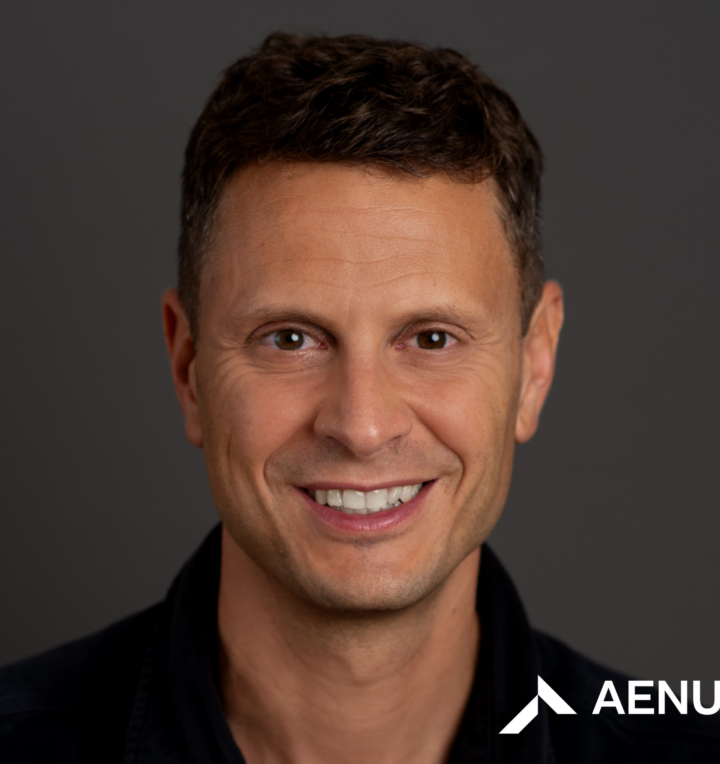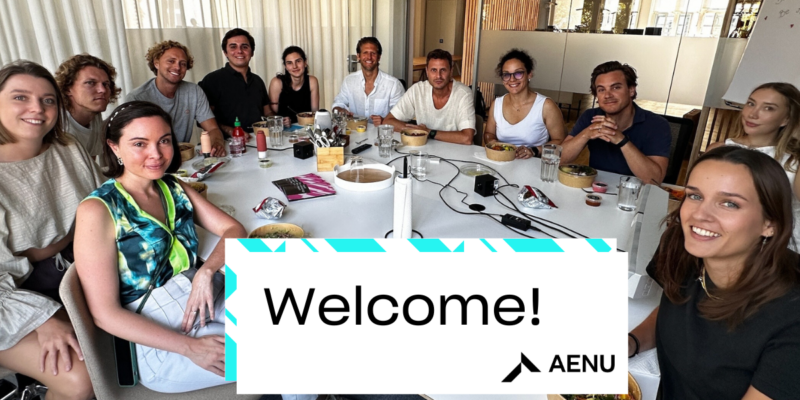Interview: Lawrence Leuschner joins AENU as Venture Partner!

As a newly appointed Venture Partner, Lawrence Leuschner brings years of entrepreneurial experience to the table, having successfully co-founded and scaled companies like Rebuy and TIER. In this candid conversation, Lawrence shares his key takeaways from building mission-driven and product-centric company cultures, offering valuable insights for today’s early-stage founders—particularly in the climate tech space. From learning to trust your instincts to navigating major setbacks, Lawrence’s journey is a testament to the power of resilience, strong leadership, and a focused mission.
- What are your top takeaways on building a mission-driven, product-centric company culture?
“A Northstar KPI that everyone in the company works towards is essential. Choose this KPI wisely, as it should embody the key objective of the company—something everyone understands and can contribute to. When the entire team is aligned on this mission, a culture naturally forms that is both mission-driven and product-focused.”
2. Looking back, what’s one key decision you wish you’d made earlier in your journey?
“In hindsight, there are certainly decisions that could have been made differently, which might have led to different outcomes. But at the time, I made those decisions based on the information I had and what I believed was right. So, I try to reflect but not regret. Reflection helps you grow, but regret only holds you back.”
3. Can you share a memorable “war story” from TIER’s journey that holds valuable lessons for today’s early-stage founders in climate tech?
“There are many stories—some public, some private—but one that always stands out is our mission statement, which became a mantra: ‘Change mobility for good.’ Even in the toughest times, this was something everyone could rally around. It kept us going when things were difficult, and it carried us through until the sun came back out.”
4. What were your 3 biggest mistakes in dealing with VCs, and what advice do you have for founders navigating similar situations?
“First, always get a warm intro from a trusted source to a partner to quickly build a relationship. Second, do your reference checks—they’ll do them on you, so make sure you do them as well. Third, don’t overestimate the brand name of a VC; it’s really about the people you’ll be working with. But the most important thing: don’t put all your chips on one VC. Build a strong setup so that if one falls through, you have options.”
5. How can founders better trust their instincts and take decisive action based on your experiences?
“One of the key skills founders develop over time is the ability to trust their instincts. I don’t think this is a challenge unique to any founder—every day, you’re making multiple decisions. The more you trust your gut, the more confident you become in navigating the uncertain waters of entrepreneurship. It’s really about practice—those instincts sharpen as you go.”
6. What was the most pivotal challenge you faced early at Rebuy and TIER? How did you overcome it, and what advice do you have for founders in similar make-or-break moments?
“At both Rebuy and TIER, I faced major setbacks when key investors pulled out. Those moments were incredibly tough, but they taught me resilience. It took a lot of hard work and time to recover from those losses. My advice for founders in similar situations is simple: keep pushing. Don’t let one setback define your trajectory. Stay focused on your mission, build strong relationships with multiple stakeholders, and be relentless in finding solutions.”
7. When did you realize you had to pivot or adapt your strategy at TIER, and what were the key signals? How can founders recognize when it’s time to pivot?
“Global shocks like COVID forced us to adapt quickly, but thoughtfully. At that point, TIER was a large organization with thousands of employees across 20 countries and over 500 cities. What I learned in those moments is that after you’ve heard all the opinions and looked at all the data, you need to go inward. Find a quiet space, calm your mind—meditate. When you’re mentally clear, you’ll recognize when the fog has lifted and the path forward is clear. That’s when you act decisively. You can feel in your body when something is right or wrong. Listen to that intuition, and then execute.”
8. What were the toughest leadership lessons you learned while scaling? How can early-stage founders better prepare for leadership challenges as they grow?
“Leadership is something you often have to learn the hard way. Some people are naturally gifted with leadership qualities, but for most, it’s about learning through experience—managing people day in and day out. For me, a guiding mantra has always been ‘Leadership creates followership.’ If your team is willing to go through fire for you, that’s a sign that your leadership is working. But it’s important to remember that leadership isn’t about everyone agreeing with you all the time—it’s about inspiring people to believe in the mission and act together towards it.”
Thank you for that interview, Lawrence! We are happy to welcome you as Venture Partner!
The AENU Team
